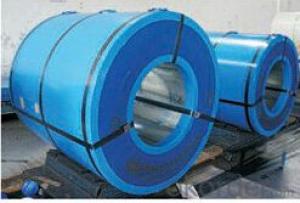When it comes to construction projects, the role of reinforcing bars, commonly known as rebar, cannot be overstated. These steel bars are essential for providing structural integrity and support to various types of buildings and infrastructure. But with so many options available in the market, finding the best deals on this essential material can be a daunting task. This article aims to guide you through the process, sharing tips and tricks to ensure you get the most value for your money without compromising on quality.
The Importance of Quality Rebar
Before we dive into finding the best deals, it’s crucial to understand why quality matters when it comes to rebar. Low-quality rebar can lead to structural failures, putting lives at risk and causing significant financial losses. Investing in high-quality rebar is not just about the initial cost; it’s about ensuring the safety and longevity of your construction project.
Identifying the Right Type of Rebar
Rebar comes in various shapes, sizes, and grades. Knowing the specific requirements of your project is the first step in identifying the right type of rebar. For instance, if you’re working on a residential building, you might need different grades compared to a commercial high-rise. Understanding the differences between Grade 40, Grade 60, and other types of rebar can help you make an informed decision.
Researching Suppliers and Manufacturers
Once you know what type of rebar you need, the next step is to research potential suppliers and manufacturers. Look for companies with a solid reputation in the industry. Read reviews, ask for recommendations, and don’t be afraid to reach out to multiple suppliers for quotes. This will give you a better understanding of the market and help you identify the best deals.
Comparing Prices and Quantities
When comparing prices, it’s not just about the cost per unit. Consider the quantity you need and whether there are any discounts available for bulk purchases. Some suppliers may offer lower prices for larger orders, which can significantly reduce your overall cost.
Evaluating Delivery and Logistics
The cost of delivery and logistics can also impact your total expenditure. Some suppliers may offer free delivery within a certain radius, while others may charge extra. Factoring in these costs will give you a more accurate picture of the total cost of your rebar purchase.
Considering Payment Terms and Financing Options
Payment terms and financing options can also play a role in finding the best deals. Some suppliers may offer flexible payment plans or even financing options to help you manage your budget. This can be particularly helpful for larger projects with a higher cost of materials.
Negotiating for Better Deals
Don’t be afraid to negotiate with suppliers. Many are willing to offer discounts or other incentives to secure your business. Be polite and professional, but also assertive in expressing your needs and the value you bring to the table.
Checking for Hidden Costs
While negotiating, be sure to ask about any hidden costs that may not be immediately apparent. This includes additional fees for processing, handling, or any other services that may be bundled with the rebar purchase.
Ensuring Compliance with Standards
Lastly, ensure that the rebar you’re purchasing meets all relevant industry standards and regulations. This not only protects you legally but also ensures that you’re getting a product that is safe and reliable.
In conclusion, finding the best deals on rebar involves a combination of research, negotiation, and careful consideration of all costs involved. By following these tips, you can secure the essential materials for your construction project at a price that won’t break the bank. Remember, the cheapest option isn’t always the best one; quality and safety should always come first.

